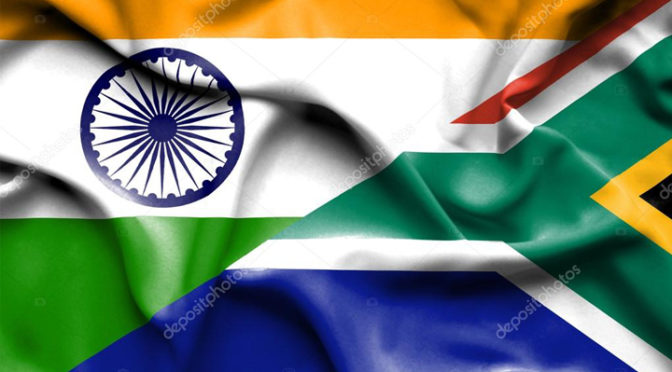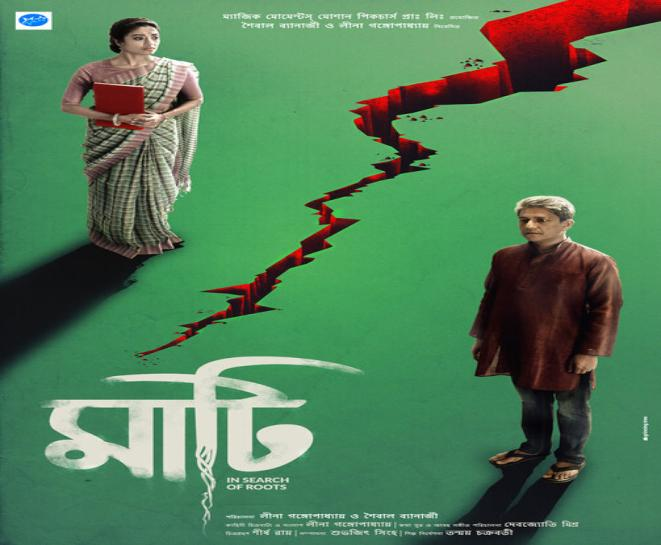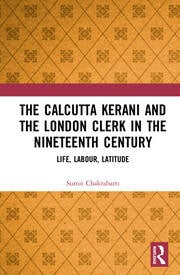India South Africa Relations
Posted on : February 3, 2019Author : AGA Admin

A successful bilateral dialogue ensures the stability of political, economic and cultural relations between two nations. The visit of South African President, Cyril Ramaphosa to India in January 2019 for the 70th Republic Day celebrations and the signing of the three year strategic plan between South Africa and India deepened the ties between the two nations to a great extent. The uniquely intertwined histories of India and South Africa have ensured that the bonds between the countries are, as Prime Minister Modi said, “much deeper than we generally realize”. The relationship between India and South Africa dates back to several centuries and has its foundations in similar ideals, interests and icons – like Mahatma Gandhi and Nelson Mandela.
However, their bilateral relationship remained strained for a long time due to South Africa’s apartheid government. Following its independence India was at the forefront of the international community in its support to the antiapartheid movement; it was the first country to sever trade relations with the apartheid Government (in 1946) and subsequently imposed a complete – diplomatic, commercial, cultural and sports – embargo on South Africa. India worked consistently to put the issue of apartheid on the agenda of the UN, NAM and other multilateral organizations and for the imposition of comprehensive international sanctions against South Africa. The ANC maintained a representative office in New Delhi from the 1960s onwards. India actively worked for the AFRICA Fund to help sustain the struggle through support to the frontline states.
India’s relations with South Africa were restored after a gap of over four decades with the opening of a Cultural Centre in Johannesburg in May 1993. Diplomatic and consular relations with South Africa were restored in November 1993 during the visit of the then South African Foreign Minister Pik Botha to India. A Consulate General was thereafter established in Johannesburg. The Indian High Commission in Pretoria was opened in May 1994, followed by the opening of the Consulate General in Durban the same month. Since Parliament in South Africa meets in Cape Town, a permanent office of the High Commission was opened there in 1996, which has been re-designated as Consulate General of India with effect from January 2011. In addition to its High Commission in Delhi, South Africa has a Consulate General in Mumbai.
India and South Africa’s shared common experiences and collective strength have shaped how they both view the world together. As two nations who have shared their struggle to freedom, the responsibility to improve the lives of others is embedded within India and South Africa’s consciousness. After South Africa achieved democracy in 1994, it was the Red Fort Declaration on Strategic Partnership between India and South Africa, signed in March 1997 by then PM Shri Deve Gowda and Nelson Mandela, which set the parameters for a rekindled relationship. This Strategic Partnership between the two countries was again re-affirmed in the Tshwane Declaration (October 2006). Both these declarations have been instrumental mechanisms that have contributed in the past to both South Africa and India for achieving their respective national objectives. South Africa participated as the Partner Country in the ‘Vibrant Gujarat’ summit held in 2018. And Indian companies are taking active part in the efforts of President Ramaphosa to increase investment in South Africa.
India and South Africa sealed a three-year strategic programme in January 2019 during Cyril Ramaphosa’s visit to India. The strategic programme will cover cooperation in a range of areas, including defence and security, trade and investment, the blue economy, tourism, IT and agriculture. India is also a partner in South Africa’s skill development efforts. The Gandhi-Mandela Skills Institute is set to be established soon in Pretoria. Prime Minister Narendra Modi and President Cyril Ramaphosa displayed their commitment to take the bilateral relationship to newer heights. A joint statement said the two leaders expressed satisfaction at the “steady pace of cooperation in the defence sector” encompassing a wide range of engagements, including defence production, joint collaboration, manufacturing, research and development, training and joint exercises. Understanding the need for concerted action by the global community against terrorism through early agreement and adoption of the UN Comprehensive Convention on International Terrorism, as well as the implementation of the UN Global Counter-Terrorism Strategy in a balanced and integrated manner, the two leaders “condemned terrorism in all its forms and manifestations regardless of its motivations, whenever, wherever and by whosoever committed”. They recognised the importance of increased bilateral naval cooperation and closer synergy within the context of Indian Ocean Naval Symposium which, by keeping the sea lanes secure against illegal actors, will ensure unhindered passage for trade and continued prosperity of the entire Indian Ocean Region.
India and South Africa have a long history of working together by coordinating their views and efforts in institutions of global governance/multilateral fora. The various multilateral fora of which India and South Africa are important dialogue partners are:
BRICS (Brazil, Russia, India, China and South Africa) – In 2010, the formerly known grouping of BRIC, became BRICS with the induction of South Africa. The BRICS Forum’s valuable contribution in reforming the global financial and economic architecture is well-appreciated by both India and South Africa.
IBSA (India, Brazil, and South Africa) – Established in 2003, the IBSA Dialogue Forum brings together three large democracies and major economies from three different continent’s facing similar developmental challenges, and represents three developing, pluralistic, multicultural, multiethnic, multilingual, and multi-religious nations. India and South Africa appreciates the work carried out by the IBSA Facility for Poverty and Hunger Alleviation (IBSA Fund), established in March 2004.
G20 – Both India and South Africa recognises G20 as the premier forum for coordination in international financial and economic matters, and calls upon the world-community to utilise monetary, fiscal, and structural reforms to jump-start the global economy.
World Trade Organisation (WTO) – India and South Africa supports WTO as the sole-multilateral mechanism on global trade, commerce, and in the centrality accorded to the development-agenda in the Doha Development Round. On July 12, 2018, India and South Africa made a joint proposal at the WTO, which said “the realities prevailing in the 1998, when WTO members agreed for the first time to the temporary moratorium on customs duties on electronic transmissions, have changed significantly during the subsequent two decades.” Their main contention is that the present moratorium can lead to loss of competitiveness among developing countries, since they have higher tariffs on physical products, while the same product in digital form attracts zero duty. This joint India-South Africa report took due note of attempts by the developed world to make commitments more comprehensive and stringent through negotiations on regional trade agreements and multilateral agreements.
South Africa is home to the highest number of Indian Diaspora in the African continent, with a total strength of 1,218,000 thereby constituting 3 percent of South Africa’s total population. Since 2003 onwards, India celebrates Pravasi Bhartiya Divas (PBD) each year on 9th January (the day Mahatma Gandhi returned from South Africa to India).
The partnership between India and South Africa, in the words of Modi is, “about a shared and prosperous future, which realizes the dreams of Madiba and Mahatma for our people. We seek constantly to engage and collaborate for a better future for our people, and also the world”.
Megha Singh
Intern, AGA





Leave a Reply